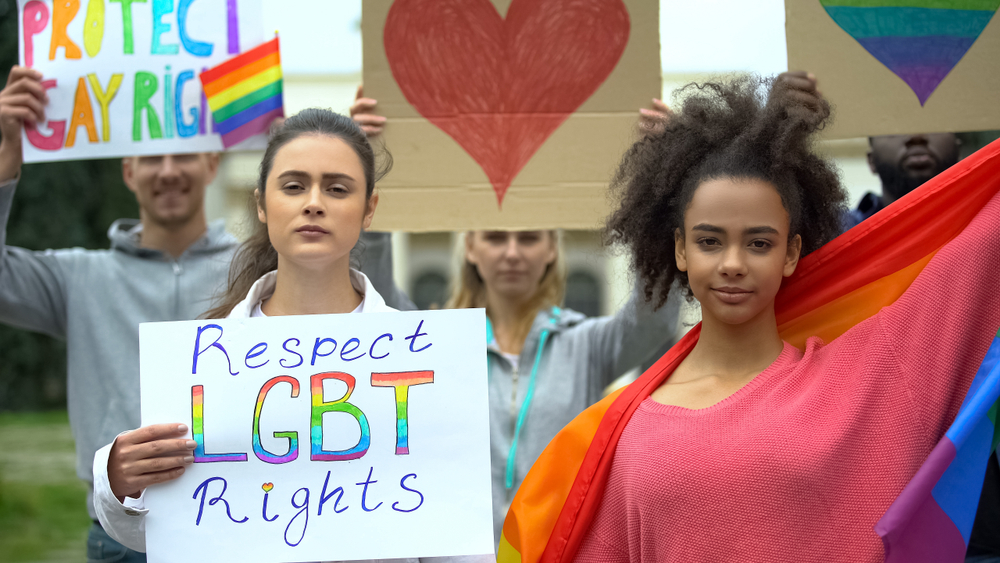Unfortunately, many lesbian, gay, bi, trans, intersex and queer (LGBTIQ) people face discrimination and even violence because of their actual or perceived sexual orientation and gender identity. That’s why LGBTIQ people and their allies around the world are organising and advocating for equal rights for everything from health care and education, to the right to freedom of association and assembly.
Equality is a bedrock principle of human rights. The very first article of the UN Universal Declaration of Human Rights refers to everyone being “free and equal in our rights and dignity.”
Yet too many governments cling on to outdated and discriminatory laws that criminalise LGBTQ people. Imagine being arrested for just being who you are!
Some governments also seek to target and punish those who try to protect or promote the human rights of LGBTIQ people. In addition to threats and attacks facing all defenders, LGBTIQ human rights defenders are exposed to specific risks and challenges, driven by structural inequity related to gender and sexuality.
An intersectional approach is key – the grounds on which people face discrimination reinforce and worsen one another. For example race, sexual orientation and gender identity and expression together inhibit queer black women’s advancement to a degree that either factor separately might not.
LGBTIQ human rights defenders face challenges both because of the work they do, and because of who they are.
LGBTQ campaigns seek to achieve the promotion and protection of LGBTQ rights, and LGBTQ equality. As a society we’re at our best when we are open and accepting and we ensure that everyone is safe, empowered and supported. We can all play our part in building communities that are inclusive and properly recognise and respect the rights of LGBTIQ communities. We can also encourage our governments to tackle violence and discrimination and remove any discrimination from national laws, in line with international and regional human rights standards.
You may have seen slightly different acronyms used for and by the LGBTIQ or LGBTQ movement. Acronyms used depend on the specific communities that are being referred to. At the United Nations you will hear the term sexual orientation, gender identity and expression (SOGI) or sexual orientation, gender identity and expression and sex characteristics (SOGIESC) – these terms refer to the issues relevant to the LGBTQ and LGBTIQ communities. Not all communities within the LGBTIQ communities suffer from the same violations, for example, the intersex community suffers specific and distinct violations.
ISHR and LBGTIQ rights
Building on our leading role in developing the Yogyakarta Principles and the Yogyakarta Principles plus 10, and in contributing to the creation and renewal of a UN expert dedicated to these issues, ISHR works with LGBTIQ rights defenders and movements to strengthen international, regional and national protections against violence discrimination. You can read more about our specific work on this here.

